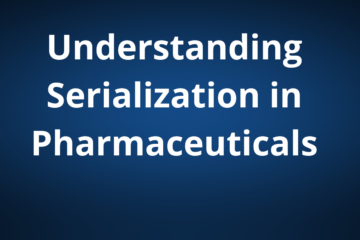Pharmaceutical Drug Traceability in Saudi Arabia: Comprehensive Overview
Introduction to Saudi Food and Drug Authority (SFDA) and Serialization Landscape
The pharmaceutical sector in the Gulf Cooperation Council (GCC) countries has been undergoing transformation for over two decades, with serialization emerging as a pivotal challenge in recent years. As global pharmaceutical supply chains become increasingly intricate, the Saudi Food and Drug Authority (SFDA) has introduced the RSD identification system as part of its commitment to realizing Vision 2030. This initiative aims to comprehensively track the supply chain of medications in Saudi Arabia, ensuring safety from production to consumption.
Implementation Progress and Impact
In 2018, Saudi Arabia initiated the serialization of medication boxes by local manufacturers, extending the program to distributors, pharmacies, and hospitals. This involves scanning medication boxes before distribution, ensuring compliance with RSD regulations. All stakeholders, including manufacturers and importers, must register with the SFDA, which also facilitates consumer medication verification and adverse reaction reporting.
Adoption of GS1 Standards
To bolster tracking capabilities, the SFDA adopted GS1 standards for pharmaceutical products, including non-prescription medications. These standards enhance supply chain safety, visibility, and efficiency across physical and digital channels. The SFDA’s overarching objective is to ensure secure and systematic pharmaceutical supply chains that cater to the needs of all stakeholders.
Pharmaceutical Company Responsibilities
Pharmaceutical companies in Saudi Arabia are mandated to implement the GS1 2D Data Matrix, comprising GTIN, expiration date, lot/batch number, and alphanumeric serial number. Additionally, drugs must be approved and registered with a Saudi Arabia Drug Code (SADC) assigned by the Saudi Drug Code (SOC). Companies are required to utilize RSD Stakeholder Management and Operation Portals for transparent shipment disclosure, streamlining the registration process through online platforms.
Aggregation Requirements
Since October 2019, aggregation of individual packages has become mandatory in Saudi Arabia, with an 18-digit Serial Shipping Container Code (SSCC) applied at the carton and pallet level. Each aggregated drug unit’s whereabouts are tracked via the Global Location Number (GLN). While initially focused on human medicines, the track-and-trace process will eventually encompass other healthcare products and extend to the food and medical technology sectors.
The Urgency of Compliance
The complexity of Saudi Arabia’s pharmaceutical requirements underscores the urgency for companies to swiftly adhere to regulations. Compliance with SFDA guidelines not only ensures regulatory adherence but also enhances patient safety, contributing to the overall advancement of the health economy. Contact us for free consultation.
References and citations:
Jadi, Amr. “Enhancing the monitoring system of sfda in Saudi markets.” International Journal of Software Engineering & Applications 7.4 (2016): 31-45.
Disclaimer: This information is provided “As Is” and does not constitute legal advice. Users should refer to official sources for complete requirements and interpret them independently before making business decisions.


